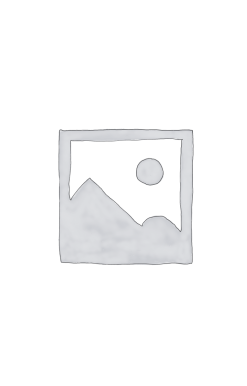The Mirror Test: America at War in Iraq and Afghanistan
14.00 JOD
Please allow 2 – 5 weeks for delivery of this item
Add to Gift RegistryDescription
A New York Times Editors’ ChoiceA Military Times Best Book of the YearJ. Kael Weston spent seven years on the ground in Iraq and Afghanistan working for the U.S. State Department. Upon returning home, traveling throughout the United States to pay his respects to the dead and wounded, he wondered what lessons, if any, could be learned from these wars.In this essential book, Weston questions, interprets, and explains our wars in the Middle East through a tapestry of voices—Iraqi, Afghan, and American—taking readers across California and Fallujah, Khost and Colorado. Along the way we meet generals, corporals, and captains, former Taliban fighters, Afghan schoolteachers, SEAL teams, imams, and many Marines. When will these wars end? How will they be remembered? Perhaps no one is better suited to tackle these important questions than Weston. The Mirror Test is an unflinching look at warfare and diplomacy, and a necessary reckoning with America’s actions abroad.
Additional information
| Weight | 0.49 kg |
|---|---|
| Dimensions | 3.41 × 13.09 × 20.15 cm |
| PubliCanadation City/Country | USA |
| Author(s) | |
| Format | |
| language1 | |
| Pages | 624 |
| Publisher | |
| Year Published | 2017-4-4 |
| Imprint | |
| ISBN 10 | 0345806948 |
| About The Author | JOHN KAEL WESTON represented the United States for more than a decade as a State Department official. Washington acknowledged his multi-year work in Fallujah with Marines by awarding him one of its highest honors, the Secretary of State's Medal for Heroism.www.jkweston.com |
Praise for J. Kael Weston’s The Mirror Test: “Closely observed and illuminating. . . . Weston’s reportage recalls the finest foreign correspondence of the Iraq and Afghan wars.” –The New York Review of Books“Weston is. . . a diplomat of great bravery, erudition and heart who befriended Afghans and stood up to his superiors. . . . The emotional core of The Mirror Test is Weston’s profound love for the Marines. . . . Weston is [a] civilian hero.” —The New York Times Book Review“Weston, who worked as a State Department official for more than a decade, brings balance and cultural perspective different from the previous war books. . . . Along the way, he heralds humanitarian efforts and describes a fascinating dynamic of American dollars simultaneously rolling out to fund the allied war effort and the Afghan infrastructure.” —The Desert News “This book shines when it recounts Weston’s day-to-day dealings with Marines (and Iraqis and Afghans). . . . [The Mirror Test] deserves a salute.” —St. Louis Post-Dispatch“Weston, a former State Department official, spent seven courageous and harrowing years on the front lines as a political adviser to American troops. His memoir offers a serious examination of the effects of terrorism from a personal and emotional perspective.” —The New York Times (Editors’ Choice)“As a former Foreign Service officer, Weston is perfectly positioned to provide a different perspective on these wars’ sometimes-particular complexities. . . . The Mirror Test offers insights into tribal, cultural and religious dynamics; the limits of military power as a political instrument; the use of drones; the heavy reliance on special operators; cooperation and failed cooperation among military services, agencies and allies.” –The Washington Post |
|
| Excerpt From Book | By summer 2003, massive and ongoing troop movements had outstripped the Pentagon’s ability to fly U.S. service members to Iraq using only military aircraft. Lucrative contracts were awarded for commercial and charter airlines to fill the gap. Soon Boeing 757s helped transport battalions of Marines and soldiers to Kuwait. From there the Pentagon’s workhorse C-130 flown by uniformed pilots—many National Guard units in effect federalized—made the final, corkscrew landing into Baghdad.I was age thirty-one and headed to Iraq, to war, for the first time—not as a soldier but on behalf of the State Department. I had left the U.S. Mission to the United Nations in New York after diplomacy there failed, by design. The unnecessary war a commander in chief and the neoconservatives in Washington wanted, Iraqis got . . . and would keep getting for years to come. So did all of us who went over there, year after year after year.Hearing that I worked for the State Department, the pilot guiding our flight invited me into the back part of the cockpit to observe our descent into the Middle East. The deserts below were dark, as was the sky. I did not see any stars. It was as if we were flying into a void, somewhere above us was Mars, the Red Planet, named, of course, after the Roman god of war. Compact, calm, and yet talkative, the pilot noted he was nearing retirement, but had volunteered for these special flights because he considered it to be an honor to fly troops to their last point before continuing into Baghdad, into the war. He said he was certain the U.S. needed to invade Iraq. The pilot believed Saddam Hussein was a threat and had hidden weapons of mass destruction.Toward the end of our time in the air, with the copilot now flying the plane, the chief pilot gave me one of his business cards, embossed with his special designation as American Airlines’ “senior pilot.” I had no idea airlines had Number One pilots, rank ordered in seniority, but what an American notion: Top Dogs, even in commercial fleets.With my first of two wars just beginning, it felt like an adventure. I was, oddly enough in retrospect, excited. I was also naive.As I left the cockpit, he said he wanted to land in Baghdad one day. At Saddam’s old airport before any other commercial U.S. pilot, once civilian flights were cleared to fly beyond Kuwaiti skies.“We’re American Airlines. We should be the first.”I kept to myself that I doubted any passengers would be collecting frequent flier miles on their way to and from Iraq anytime soon.A few days later I arrived in Baghdad from Kuwait via a sweltering C-130, then by armored convoy into the center of Iraq’s now occupied capital city. I suddenly represented the “Occupying Power” in the middle of Mesopotamia. I did not feel victorious. But I knew I wanted to show a less ugly or arrogant America, the kind that had lectured world leaders in the run-up to the war.Few civilians had yet arrived in Iraq to staff the U.S.-led Coalition Provisional Authority (CPA). Part of the first wave in—and probably the most anti–Iraq War member of the group—I recognized in myself a degree of self-congratulatory pride in that fact: being against the war, but volunteering for it. This stand had cachet tied to it, but also conviction. I was not the kind to complain about Iraq in another “March of Folly” fashion. That self-righteous phase of mine lasted about a week among friends, over many cups of coffee and a few beers. It got old fast, and they conveyed as much. Better to be in Baghdad, among Iraqis who could tell me what they thought—not what I might think they thought from thousands of safe miles away.Everything about the place, the Coalition Provisional Authority, indeed felt provisional. Only about fifty State Department personnel had been assigned to help oversee Iraq’s occupation and none of us had an at-war roadmap handy. We were hugely outnumbered.Based on sheer size, the U.S. military basically ran the country despite Ambassador L. Paul Bremer III’s being named by President George W. Bush as top envoy, or Iraq’s “administrator.” With such an anodyne-sounding title, he kept his pinstriped, dark suit attire, often adorned with red ties and white handkerchief. But Bremer also incorporated a different fashion protocol, soon mimicked by his inner circle: instead of State Department wingtips, he wore sand-colored canvas military boots. Granted, in a war zone, this sartorial combination looked odd yet seemed practical. It did not come across that way, however, to Iraqis. To them, boots were only made for stomping, not liberating.We all were in way over our heads from the very beginning—a gut truth I felt from day one lasting all the way until I departed years later. All of us confronted the same dilemma. No matter what the reasons or the partisan insider connections that had brought us to Iraq as imperialists exported from America, we were linked by ignorance, unrealistic expectations (earnest idealism in some), and growing dangers. A Mission: Impossible.I felt stir-crazy after just a week. To escape the palace intrigue and my more Machiavellian-minded colleagues, I ventured out as often and as far as I could, past towering date palm trees (a once famous Iraqi agricultural export) to explore Iraq beyond Saddam’s former home—its manicured lawns and yellow flowers could be mistaken for a Palm Springs resort, alongside a deep blue Olympic-sized swimming pool with two diving boards, and a barbecue pit. Despite the “shock and awe” bombing of Baghdad by U.S. warplanes, it somehow retained its dictatorially opulent look and feel.When stuck in the palace I would seek out some of the cleaners hired to sweep the ever-present sand from our white marbled floors, who made sure our shoes did not crunch as we navigated the vast floor space. They commuted from Baghdad’s poorest Shia neighborhoods into the Green Zone, the ten-square-kilometer, heavily guarded enclave inhabited by coalition officials and military personnel that served as CPA headquarters. I tried to talk with them almost daily, their elementary English far surpassing my virtually nonexistent Arabic. The cleaning crew helped provide me with insights into life beyond the gates. At first, they were wary when I asked them questions, but eventually several opened up. One of the lead custodians, never seen inside without his broom or outside without cigarettes, offered memorable advice.“Iraqis only respect and fear strength. Democracy won’t work in Iraq.”He probably thought I would whisper his words into Bremer’s ear, but I thankfully was not part of the administrator’s closed inner circle. But what he said rang true. Iraqis knew all about survival, not voting booths.The custodian asked me at one point why we had moved into Saddam’s grand palace. I said because it was easiest to secure and convenient. He seemed like he wanted to say something in response, challenge me perhaps, but did not. I guessed what must have been on his mind. Just what kind of message did America intend to send to the Iraqi people as we moved into countless ex-dictator palaces virtually in the first week of our arrival?It took between two and three hours each morning for the custodian and other palace cleaning staff to pass through multiple checkpoints, barriers that said everything about our relationship with the Iraqis we professed to know and sought to help. Concrete blast walls. Rings of razor wire. Armed security contractors with black shades and big rifles.And badges. Lots of badges, different colors and codes to differentiate us from them. Haves, have-nots—those of us inside our climate-controlled bubble versus those who had to sweat out the invasion and growing insurgency.Over the next year, dozens of Iraqi day laborers would die from car bombs exploding at the front gates as they waited to enter the Green Zone for another day of work. Theirs was arguably the most deadly, daily commute in Iraq. While at night American expatriates would hold “Baghdad Idol” contests and “Pirate Day” poolside parties.That same first week, I asked my new boss what part of Iraq’s imperial supervision would be mine. I did not want to have anything to do with oil. CPA life morphed into a power trip, temporarily infecting me as well. I confidently believed that I would be given a high-visibility assignment on a pressing political challenge—we had so many and all at once—given my prior work in New York in the Political Section at the U.S. Mission to the U.N.Unexpectedly, however, top CPA management informed me that my new job would be as point man on a very different set of issues and characters: Iraq’s truckers. I was not excited. I was not reassured. The only truckers I knew in the U.S. were from movies, and they did not seem to be the most diplomatic of groups. Or friendly.This would prove to be the best kind of assignment. I could not have known it then, but Iraq’s truckers would quickly become my first true link to the real Iraq. In many ways they comprised the lifeblood of a country in mounting disarray. If any goods needed to be transported from point A to B or all the way to Z, it was the truckers who would get them there. But they were on the verge of a starting a mini-revolt over pay levels and requested an urgent meeting with me.The truckers’ argument lay in a gray area. They claimed Saddam’s senior officials had promised them the funds prior to the invasion. As the new de facto government, teamster leaders argued that we were obligated to honor this commitment. So far Ambassador Bremer had vetoed any payout. Before the meeting, I did a bit of homework with our legal team and learned that our authorities under the guiding U.N. Security Council resolution were sweeping, but with limits—not all changes had to be made unilaterally by Ambassador Bremer via his signed orders. This gave me some degree of flexibility should I need it.I had been warned that the head teamster, Mr. Bassam, was one of the most charismatic and intimidating Iraqis my colleagues had so far engaged in Baghdad. I thought he could not be a harder challenge than the Russian, Chinese, or French diplomats in New York, who sat alongside me on the U.N.’s Al Qaeda and Taliban Sanctions Committee. I had negotiated Security Council resolutions with these delegations and sparred over words that were binding upon governments under international law.Bassam proved me wrong. Upon finally meeting him, I almost expected to hear a Jersey accent. He was pudgy, bearded, with thick baseball-mitt-sized hands. Tony Soprano would have found a kindred spirit. He smelled of cigarette smoke and liked eating three-foot-long Tigris River carp, the key ingredient in a traditional dish called Masgouf—a local bony delicacy also favored by Saddam—and, it was rumored, enjoyed by former French president Jacques Chirac, who had the fish flown to Paris and prepared by his personal chefs.A trained mechanic, Bassam had risen to be a chief representative of Iraq’s hundred-strong teamster high command, a group that controlled massive Volvo truck fleets crucial for stability in the country. He and his men moved food—tons of it, daily. Wheat flour, rice, sugar, beans, salt, cooking oil, tea. The staples a majority of Iraqis depended on to feed their families: any breakdown in Iraq’s food distribution network could lead to riots and political paralysis. And the teamsters, I realized, had the most leverage. Not us.Over that afternoon, with the staid deputy trade minister in suit and tie seated next to me, we listened to the teamsters’ arguments. It turned out that Saddam functionaries had indeed promised them money. Some truckers were on the verge of revolting as a result of the lack of pay. We simply could not afford any disruption to the supply network, however brief. Finally, Bassam told me that the coalition needed more friends, not enemies, and truckers made good friends.Touché, I thought.The balding, elderly minister with his professor-like demeanor looked to me at the end of our session, but said nothing. I sat as an underdressed, decades-younger imperialist. His awkward silence signaled the decision was mine, not his. He handed me two official-looking memos in Arabic, noting one indicated approval, the other rejection. I signed the approval. Bassam reached out and shook my hand, his two-handed grip leaving indentations on my wrist. We both knew who was in charge.I began to think how I would explain this unilateral decision of my own, contrary to Bremer’s guidance, back at the palace. But in a few days, growing instability across the country became the overriding focus. And Iraqi media reports that the food basket entitlement might be reduced or eliminated by the Americans had led to a growing public outcry—“introduction of free market forces” had been a CPA mantra among some hard-core capitalists while anathema to the more measured British contingent. My instinct had proved right. We needed the truckers on our side. I never heard from Ambassador Bremer on the matter.The deputy trade minister estimated my deal with Bassam would cost the Iraqi treasury, which we controlled, several million dollars. Their money spent in our, the Occupying Power’s, interest—a pattern that would be replicated across other portfolios and amount to many hundreds of millions of dollars in expenditures with little oversight and even less transparency. An Australian colleague described arriving at Baghdad’s Central Bank just after the invasion and withdrawing tens of millions of dollars in currency on behalf of Iraqi farmers. He received a handwritten receipt before loading the stacked bills into the back of an SUV.This first meeting with Bassam would lead to more before long. I enjoyed the truckers’ company, and they seemed to enjoy getting to know an American up close. So much so, bonding with Iraq’s teamsters soon morphed into the most important, and most rewarding, part of my job during Iraq’s official year-long occupation under the Coalition Provisional Authority. They became my rationale for regular trips outside the Green Zone and my link to the more vibrant and gritty Iraq. I visited their mechanic shops, ministry food warehouses, even a Sadr City slum truck lot in order to ensure that food movements proceeded despite mounting insurgent attacks across the country. |
Only logged in customers who have purchased this product may leave a review.






Reviews
There are no reviews yet.